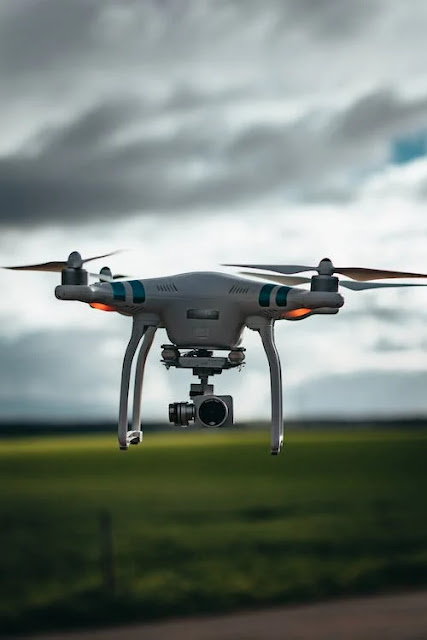Jumia Kenya Drones
Drones
have many application but mostly is being used for security purpose in all over
the world. Here Kenya is opted for analyse its application, guidelines, laws
that are imposed by government on many startups like Jumia and others.
 |
| Jumia Kenya Drones |
Jumia Kenya Drones
Jumia
Kenya Drone
is startup in drone manufacturing but they have to follow rules in Kenya made
for drone operations. A GoPro-equipped drone flies over a field outside
Nairobi, Kenya. The drone pilot flies no higher than 100 metres. Kenya banned
drones in January, effectively banning their use. Anyone who wants to fly one
must get permission from the Defense Ministry and KCAA (KCAA). The ban has caused problems for photographers'
small businesses. African SkyCam, a drone journalism project, has been halted.
Kenya Drone
Dickens
Olewe recently returned from a Knight fellowship at Stanford. He arranged
Silicon Valley's first drone journalism conference. He has several ideas on how
drone journalism may improve Kenya's news scene, such as allowing journalists
access to commercial drones to objectively evaluate flood damage. Olewe has
also employed drones to create dynamic 3D models from hundreds of photographs
and to live-stream virtual reality material. In December 2014, on the national
day of celebration at Nyayo Stadium, a drone was flown minutes before the
president arrived, Dickens claims. They made our space awkward.
South
Africa also did it, which is interesting. They added, We're worried about this
gadget, but we love its potential. We're limited the prohibition for a year
while we engage the industry and issue rules in a year," Dickens adds.
Insurance Companies using Drones
Let's
discuss insurance
if you get a licence. Who'll cover me? Gichanga believes Kenyan insurance firms
have no plan for handling this. Keeping UAVs out of flight paths and balancing
consumer drone safety and affordability are other issues. Even wealthy
countries like the US struggle to solve them. In the US, the FAA has compelled
drone operators to pay a $5 charge. Until Kenya implements comparable laws,
these photographers will remain unnoticed.
Danoffice
Danish
IT firm Danoffice is the latest to consider Kenya for drone sales as the
aviation authority finalises guidelines (UAVs). Danoffice will not sell drones
to commercial companies but will to NGOs. Danoffice's worldwide sales manager
stated they wanted to partner with animal conservation organisations and
humanitarian NGOs. Mr. Petersen stated, "We're looking at animal
monitoring - surveillance in the conservancies so rangers can get
information." "We were in Mara before the ban attempting to utilise
drones for counter-poaching. Thermal cameras in lighter versions help spot
poachers. Danoffice joins firms like Kenyan logistics company Astral Aviation,
which stated in April it would debut commercial drones if rules are
established. Zipline, a California-based robotics startup, is expanding to
Kenya. Danoffice may provide humanitarian drone deliveries like Zipline.
Essential medications and blood samples from hard-to-reach places are delivered
to labs.
Danoffice
sells UAVs to customers, whereas Zipline owns the drones and leases the
services. "The firm is cooperating with governments to provide on-demand
delivery of life-saving pharmaceuticals," Zipline stated when it began in
Rwanda last month. Zipline employs autonomous electric aircraft for delivery.
Each aircraft weights 10kg, can carry 1.5kg of medication, and can fly 120km
round trip on a single battery charge, even in wind and rain. The admission of
suppliers and operators into Kenya comes as the Kenya Civil Aviation Authority
prepares to promulgate drone guidelines that are now under public debate. The
new regulations aim to incorporate UAVs into the present aviation environment
to prevent disturbing aircraft operations and to ensure ground safety and
insurance. Use, size, and other factors classify drones. Fixed-wing and
multi-rotor UAVs may be classed by type.
Danoffice
provides both to UAV makers. It provides the long-flying fixed-wing Cumulus One
and the short-flying quad-copter Phantom 3.
Byron Osiro Danoffice area
sales manager said a working group between charitable groups, the UN, the
government, and other interested parties has been formed to work on modalities
of how they can use drones to make deliveries or general use in humanitarian
areas without overlap. Kenya has lagged behind in the use of drones due to a
lack of regulations with other countries moving ahead to develop delivery
systems for light parcels including in the U.S.
Author
For
more article, kindly read blogs by visiting at https://ihf12.blogspot.com/.
For
more videos, kindly visit our two YouTube channels
https://www.youtube.com/@imspakistan7268
https://www.youtube.com/@islamicfinance2538

Comments
Post a Comment
Please do not enter any spam link in comment box.